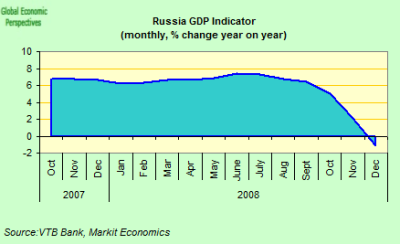No Child (left behind or anyplace else)
Apologies for this being in English, but this is a reaction to another post written in English --- the multiple translations necessary are too much for me;
So;
Edward Hugh writes a pro pos Japan's economic malaise that this is in part because of the low fertility rate this country has; ignoring his reasoning why and how this link works (by the way, I find his argument to be very cogent), his idea why some countries (i.e. Japan, Germany, Italy) have so low fertility rate is ... well ... omigod ...
Once again, this can be found here;
So, but what would be a good explanation?
Assumption:
People can choose whether to have children or not (by using contraceptives, being catholic priests, or gay or, presentably both)
Definition:
The amount of children born (in any particular period of time) is:
cb = uwp + wp
children born = unwanted preganacies + wanted preganancies
The potential amount is:
pcb = uwp + wp + ap
where ap ... avoided pregnancies.
now it should be obvious that an increase in cb has to mean a decrease in avoided pregnancies. That is so, because of medicine; modern medicine allows a lot more women than previously the be pregnant, and as decreased their and their children health care rise immensely. In other words, the problem is not biological fertility, it is not wanting to become pregnant.
That is to say: +d(cb) ---> +d(uwp)g; +(wp); -d(ap) (d as in delta, mathematical way of saying change)
Additional thought: Most of today's pregnancies are wanted (i.e. wp > uwp); that is to say planned, which is he magic word; planned; people are basing this decisions on their plans. On special plans: having a child (+ education) takes ... say twenty years, sometimes more. So people have to plan twenty years ahead, and they will become pregnant (the women, obviously) only if they can expect, with a reasonable degree of security, that they can ... let´s say sustain a child for twenty years.
Now for some economic developments:
--- The distribution of income has changed over the last twenty years; put simply the poor have gotten poorer, the rich richer, in other words a lot of people are not as well of a they used to be. (Better: A lot of peoples income has not risen in line with what they consider to be an acceptable standard of living.)
--- There is increased labour market flexibility. (It´s easier to fire you, more people (have to) change their jobs.)
It should be obvious that this is poison for the wp vs ap distribution.
Additionally their is ... our all time favourite: the conservative ideology: Women should stay home with their children, be a good housewife and mother. That is to say, they should not work. This idea is detrimental to the +d(cb) i.e. more births because
--- people - most of them - cannot as a three person household live of one wage earner.
--- women (at last some of them do want to make a carrier.
--- That is not helped by the absence of early child care facilities.
--- prolonged stays at home create difficulties at re entering the jobs market creating future insecurities and thereby another argument against having a child.
--- The possibility of divorce is another problem. Even so women get alimentation mostly this leads to a steep decline in their (and their ex husbands) social status. (Once more Three persons, one of them a wage earner is not a good combination.)
This are (by no means) the only, but nonetheless crucial problems.
And they sound entirely rational, don't they?
So;
Edward Hugh writes a pro pos Japan's economic malaise that this is in part because of the low fertility rate this country has; ignoring his reasoning why and how this link works (by the way, I find his argument to be very cogent), his idea why some countries (i.e. Japan, Germany, Italy) have so low fertility rate is ... well ... omigod ...
Once again, this can be found here;
So, but what would be a good explanation?
Assumption:
People can choose whether to have children or not (by using contraceptives, being catholic priests, or gay or, presentably both)
Definition:
The amount of children born (in any particular period of time) is:
cb = uwp + wp
children born = unwanted preganacies + wanted preganancies
The potential amount is:
pcb = uwp + wp + ap
where ap ... avoided pregnancies.
now it should be obvious that an increase in cb has to mean a decrease in avoided pregnancies. That is so, because of medicine; modern medicine allows a lot more women than previously the be pregnant, and as decreased their and their children health care rise immensely. In other words, the problem is not biological fertility, it is not wanting to become pregnant.
That is to say: +d(cb) ---> +d(uwp)g; +(wp); -d(ap) (d as in delta, mathematical way of saying change)
Additional thought: Most of today's pregnancies are wanted (i.e. wp > uwp); that is to say planned, which is he magic word; planned; people are basing this decisions on their plans. On special plans: having a child (+ education) takes ... say twenty years, sometimes more. So people have to plan twenty years ahead, and they will become pregnant (the women, obviously) only if they can expect, with a reasonable degree of security, that they can ... let´s say sustain a child for twenty years.
Now for some economic developments:
--- The distribution of income has changed over the last twenty years; put simply the poor have gotten poorer, the rich richer, in other words a lot of people are not as well of a they used to be. (Better: A lot of peoples income has not risen in line with what they consider to be an acceptable standard of living.)
--- There is increased labour market flexibility. (It´s easier to fire you, more people (have to) change their jobs.)
It should be obvious that this is poison for the wp vs ap distribution.
Additionally their is ... our all time favourite: the conservative ideology: Women should stay home with their children, be a good housewife and mother. That is to say, they should not work. This idea is detrimental to the +d(cb) i.e. more births because
--- people - most of them - cannot as a three person household live of one wage earner.
--- women (at last some of them do want to make a carrier.
--- That is not helped by the absence of early child care facilities.
--- prolonged stays at home create difficulties at re entering the jobs market creating future insecurities and thereby another argument against having a child.
--- The possibility of divorce is another problem. Even so women get alimentation mostly this leads to a steep decline in their (and their ex husbands) social status. (Once more Three persons, one of them a wage earner is not a good combination.)
This are (by no means) the only, but nonetheless crucial problems.
And they sound entirely rational, don't they?
parmenides - 18. Februar, 20:21
0 Kommentare - Kommentar verfassen - 0 Trackbacks








